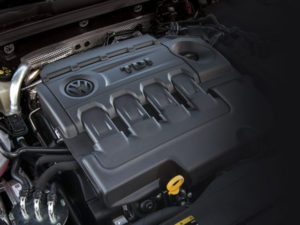Diesel emissions policies open to loopholes, study warns
Policymakers are being warned to take a wider look at the effects of vehicle emissions to avoid creating loopholes, a team of scientists has warned, following a study showing diesel engines with ‘defeat devices’ can cause more climate change than an equivalent petrol.

The report welcomed the inclusion of on-road data in the latest emissions testing.
Published in Environmental Health Letters, the research examined the climatic effects of vehicles fitted with defeat devices, complementing previous studies which have looked at health. Two Volkswagen diesels were studied under urban and highway conditions, both with and without the ‘compliance mode’ used to pass emissions tests, then simulated the climate effects over one, 15 and 100 years.
This showed, in compliance mode, the diesel vehicles had a 6-20% lower climate impact to comparable petrol engines. However, under real-world driving, the long-term benefits depend on the way the vehicles are used; when not in compliance mode, long-term climate effects were higher than for a petrol when the vehicles were in start-stop urban use, but lower for highway journeys.
The authors noted that modern petrol engines were further eroding the CO2 advantages of diesels, and added that excess NOx emissions are a “widespread problem” not limited to Volkswagen. Policies such as RDE2, which underpins diesel car tax in the UK as of this week and stipulates that cars must match laboratory emissions performance on the road, are welcome, they said. But multiple perspectives, not just climate change, must be considered in future.
Lead author, Dr Katsumasa Tanaka, from the National Institute for Environmental Studies in Japan, commented: “Our study supports the direction of new emission regulations requiring more data from on-road operations. Designing next-generation policies tackling diesel vehicle exhaust requires input from various perspectives, as well as interdisciplinary discourse.
“The climate impacts need addressing as one of the central issues together with human health, climate policies, engine technologies, regulatory mechanisms, legitimacy, and ethics to inform policymaking associated with diesel vehicle exhaust.”

